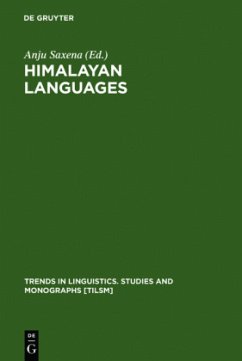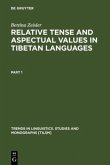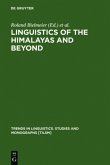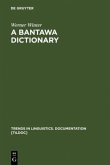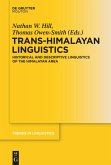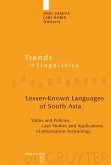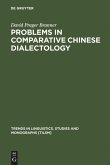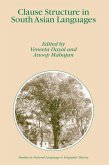With its many and diverse languages, including some with very long documented histories, its cultural diversity, and its widespread multilingualism - both the stable and transient kind - the Himalayan region is a treasure trove of empirical data for linguistic research on language typology and universals, historical linguistics, language contact and areal linguistics.
Himalayan Languages contains contributions on Himalayan linguistics written by some of the leading experts in the field. The volume is divided into three parts: First, a general overview is given of the linguistic study of Himalayan languages and language communities. The second part offers synchronic studies of individual languages of the region (Indo-Aryan languages Shina and Kalasha, and Tibeto-Burman languages Belhare, Magar, Kinnauri, Classical Tibetan and Thangmi). The papers in the third part of the volume address topics in historical and areal linguistics, with an emphasis on the Tibeto-Burman languages of the region, discussing grammaticalization processes (in Sunwar, Newar, Seke, Tshangla and Bantawa) and the subgrouping of Tibeto-Burman.
Hinweis: Dieser Artikel kann nur an eine deutsche Lieferadresse ausgeliefert werden.
Himalayan Languages contains contributions on Himalayan linguistics written by some of the leading experts in the field. The volume is divided into three parts: First, a general overview is given of the linguistic study of Himalayan languages and language communities. The second part offers synchronic studies of individual languages of the region (Indo-Aryan languages Shina and Kalasha, and Tibeto-Burman languages Belhare, Magar, Kinnauri, Classical Tibetan and Thangmi). The papers in the third part of the volume address topics in historical and areal linguistics, with an emphasis on the Tibeto-Burman languages of the region, discussing grammaticalization processes (in Sunwar, Newar, Seke, Tshangla and Bantawa) and the subgrouping of Tibeto-Burman.
Hinweis: Dieser Artikel kann nur an eine deutsche Lieferadresse ausgeliefert werden.
"With topics from descriptive Dardic phonolgy, to comparative Tibeto-Burman morphosyntax and genealogy, and universals of semantic change, this collection proves to be a diverse set of papers that would be of interest to any linguist specializing in the Himalayas, or any of the other topics mentioned here."Gwendolyn Lowes in: Journal of Himalayan Linguistics 2006
